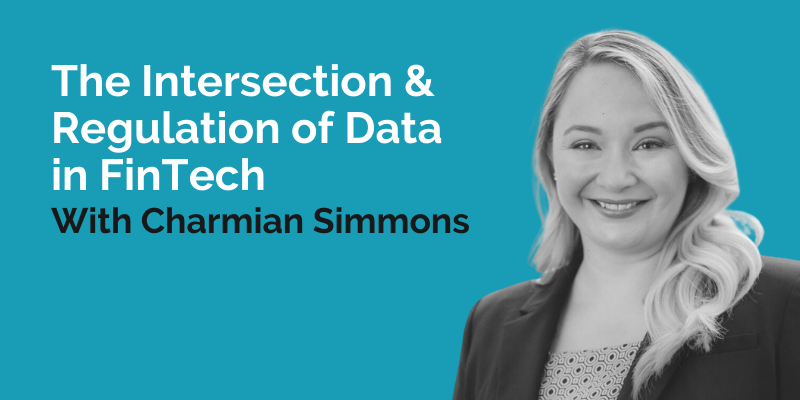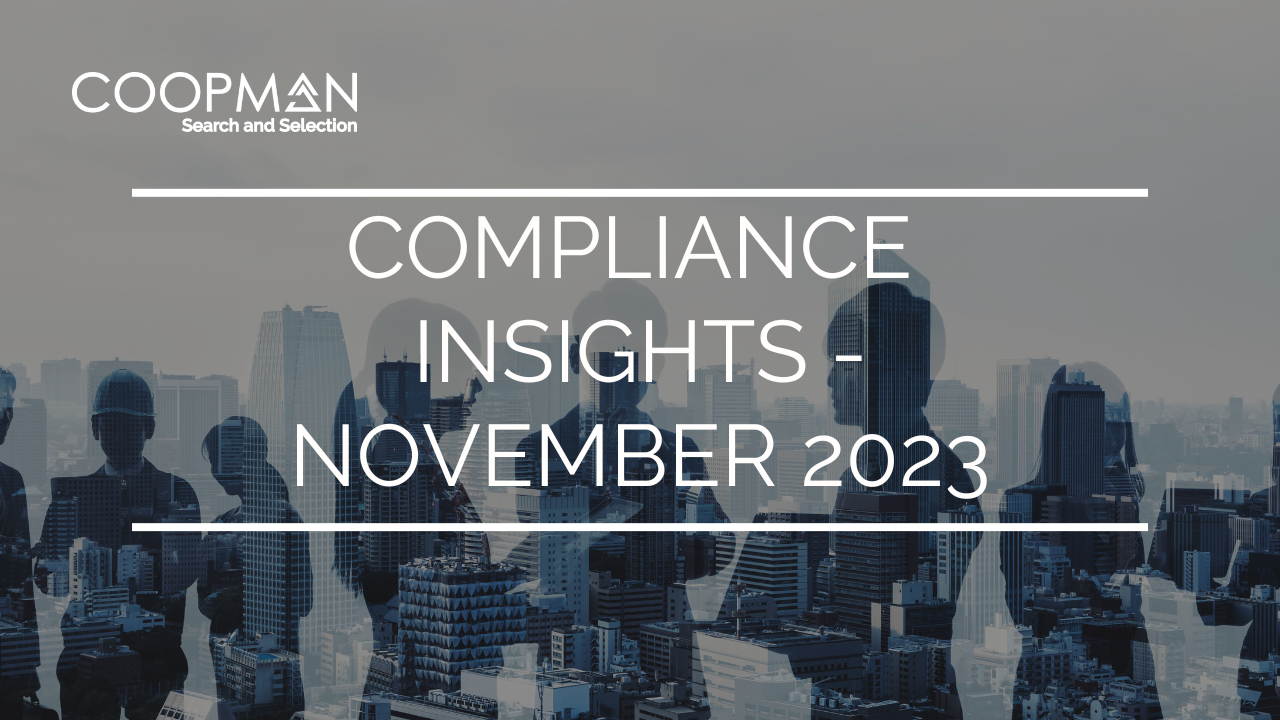In our seventh podcast episode in series 1 of “Conversations With Coopman”, risk subject matter expert, Charmian Simmons joins co-hosts Andrew Murphy and William McCoppin to discuss the relationship between regulation and innovation across the fintech sector.
Charmian has over 20 years’ experience in managing risk and specialises in internal audit, compliance, financial crime and third-party risk, primarily in the financial sector. She has held senior roles at a fintech, regtech and number of Tier 1 banks. Charmian has assisted various organisations improve their programs, processes and controls, mitigate risk and enhance data connectivity. Charmian is CAMS, CDPSE, CRMA and CISA certified.
In this episode, Charmian discusses how the pandemic has impacted the fintech sector, how it is positioned from a controls and regulatory stand point, and what the landscape looks like for fintechs in the years ahead.
Key takeaways from the conversation include:
1) THE IMPACT OF THE PANDEMIC ON THE FINTECH REVOLUTION
Covid-19 has accelerated the Fourth Industrial Revolution, expanding the digitalisation of human interaction. It has also highlighted an urgent need for innovation across the financial services value chain, so partnerships with fintechs will continue to be key for the industry.
The pandemic will play an important role in shaping where fintech and regtechs go next, with the focus on customer centricity. User experience now plays a bigger role too. With the boom in the Internet of Things and in the use of smart devices, it is now the expectation of consumers that ‘there’s an app for that’ and ‘they will come up with something to make is easier for us’.
With this being said, the fintech revolution has not reached maturity and looking back, fintechs offered means to achieve speed, innovation, and leverage technology, which will only continue. More recently, we have seen fintechs shift from being outsiders to more mature companies and engaging with all aspects of financial services. The convergence with technology has enabled new business models to truly flourish.
C-suite is ready for the transformation and while cost is a key concern, the benefits of automation are evident. They are developing digital transformation strategies and looking for digital solutions to help with operating efficiency, competitive advantage and customer expectations. As technology advances, C-suite need to take advantage of what it can deliver.
2) THE POSITIONING OF FINTECHS FROM A CONTROLS PERSPECTIVE & PUTTING THE CUSTOMER FIRST
Fintechs have typically hired ex-practitioners from compliance, audit, IT, SecOps, DevOps, InfoSec and so on, to help design, influence, and shape system and process controls and they use this to guide their product enhancement roadmaps, develop new products and channels of delivery.
Where product owners have not properly understood a requirement and its use and control point during design, such issues are usually identified quickly during UAT or specialist testing.
Customer satisfaction is a KPI for fintechs – getting it right and bringing a working and compliant solution to market is critical. Fintechs understand that they themselves and their customers are now in a business of ‘information management’ and using speciality sourced data, such as customer and market condition data, is necessary to improve the quality, speed, and price at which data is consumed and delivered.
3) RIGOROUS STANDARDS IN THE FINTECH INDUSTRY
The rigorous standards in anti-money laundering are being met across the fintech industry. This relies on a combination of software technology, platform service/hosting, the data it’s checking, the change in regulations and conditions, the risk assessment and tolerance levels set, as well as the human component of monitoring and resolving conflicts.
Regulators have been very encouraging towards fintechs/regtechs and the advances they have and are making in this area, and the fintechs/regtechs are being rewarded by attracting some of the best companies in the world. The regulators also have higher expectations for financial services to ‘get it right’ and be the front line to prevent financial crime in big financial hubs around the world.
4) REGTECHS ROLE IN FINANCIAL SERVICES INSTITUTIONS AVAILING OF NEW TECHNOLOGY AND DATA
Fintech and regtech products/data solutions have been instrumental in providing cost effective and efficient automation solutions and data sources for years now. Technology advancements have made this better and better. Data is the new global currency – but data is useful once it has meaning, so once it becomes information.
Regtechs have helped banks, lenders, wealth managers, insurance companies, real estate companies and corporates to adopt a strategic and holistic approach to managing and mitigating risk by bringing together necessary data elements to promote accuracy, efficiency, regulatory compliance, and support sustainable decision making.
Regulators work to keep pace with revolutionary disruption. When it comes BSA/AML/CTF for financial crime compliance, sanctions compliance, payments and transaction monitoring, trade finance compliance, bribery and corruption compliance, geopolitical compliance and socio-political compliance, where there is the potential for risk, it needs to be investigated.
However, data costs and newer technology costs! Over time, as companies revamp their digital transformation and cybersecurity strategies, it’s highly likely they will see an increase in departmental and technology budgets to accommodate for upgrades.
5) THE FUTURE OF THE FINTECH LANDSCAPE
The areas that will shape the regulatory landscape going forward include Covid-19, technology, and existing initiatives and emerging risks.
The pandemic has changed consumer behaviour and it has also revealed new operational risks. Disruptive technologies, such as AI/ML/RPA, IoT, robo-advisers and bots, behavioural data modelling, nudge solutions etc will all influence where fintech partnerships develop and what direction innovation moves in.
In the short term, regulatory compliance, data analytics and payments will be top of mind in response to Covid-19. No matter how these aspects impact or influence the future, these things remain true: financial services have high expectations that fintechs/regtechs will deliver revenue growth over the next 2-5 years; safeguarding data and earning customers’ trust is required for innovation to succeed; and standards and regulation will evolve and continue to evolve in response to the advancement and behaviours we accept.
CONCLUSION
Since the market crash in 2008, there has been huge disruption facilitated by the fintech industry which has been further accelerated by Covid-19. Whilst the industry has come a long way, it is yet to reach maturity and as the journey continues, putting the customer at the centre and earning their trust will be paramount. Regulation working in tandem with innovation will no doubt yield results that will continue to benefit the financial services industry in the near future.
Listen to “The Intersection and Regulation of Data in FinTech With Charmian Simmons” on Spotify, Apple or Anchor now, or sign-up to receive the latest podcast episodes straight to your inbox.
If you are interested in taking part in the podcast series, send your details to connect@coopman.ie and we will be in contact soon.








